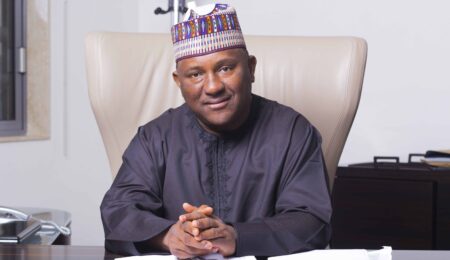It is an election season across some African countries. Nigeria has taken the lead to conduct its Presential and State elections within one month – amid heated controversies of corruption, conflicts and bigotry. According to local news, only 1,553 of the total 15,307 candidates who participated in the general elections were women. A decline from 2,968 female candidates in the 2019 elections. Only one woman, 44-year-old Chichi Ojei, contested for the presidency among 17 men.
But, 25 female governorship candidates contested on the platform of various political parties during the gubernatorial elections besides 415 male governorship candidates. None of these women came close to the finish line except Senator Aisha Dahiru Ahmed Binani of Adamawa State, who social media users have named the winner in an election the Independent National Electoral Commission (INEC) declared inconclusive.
Women are underrepresented at all levels of decision-making globally, but the situation is worse in Africa. Outside of politics, they are underrepresented across different sectors of life, despite making up half of the world’s population. If the gap is not reduced, the shortage of women in political offices will cost Africa a lot economically and socially in the future. The Organisation for Economic Co-operation and Development (OECD) projects that if women participated equally in the economy as men, it could add up to $28 trillion, or 26%, to the annual GDP by 2025. Africa has a high percentage of the world’s excluded women and could boost its GDP by fostering gender inclusion.
The continent needs more women at the decision-making table. The presence of women in top political offices could facilitate policies that would accelerate gender parity, thereby providing more women with equal opportunities to compete in the economy. “Women’s equal participation and leadership in political and public life are essential to achieving the Sustainable Development Goals by 2030,” wrote UN Women. However, there is doubt that the continent will achieve gender parity by 2030 at this pace.
Contributions of women leaders in African politics
In Africa’s historic years as a continent, 23 women have risen to the pinnacles of national politics as Presidents and Prime Ministers at sundry times- including Carmen Pereira’s 3 days presidential reign in Guinea Bissau in 1984. A number of these women were either appointed as ceremonial heads of state by the parliament or presidential selections, were either acting-president in a transition government or were vice presidents who stepped into office after the death of the elected president.
Only one, Ellen Johnson Sirleaf, former President of Liberia, was democratically elected president of an African country. She served for 12 years after a re-election that ushered her into her second tenure. Currently, Africa only has two female Presidents in Ethiopia and Tanzania, and five Prime Ministers in Namibia, Gabon, Togo, Uganda and Tunisia, respectively.
While most of these past female presidents were in office, they introduced commendable economic reforms that transformed the socioeconomic lives of their people. Africa has failed to realise that it needs more women in top governmental positions, especially as some countries battle one form of conflict over another. According to the United Nations Women, women demonstrate political leadership by working across party lines through parliamentary women’s caucuses—even in the most volatile political environments.
Sylvie Kinigi posed a perfect example when she became Prime Minister and, later, President of Burundi at a time when the Tutsis and Hutus opposition groups violently fought each other following a coup that would later incite a civil war. She pursued a constitutional reform that later installed new leaders from the two ethnic groups to contain the ethnic tensions brewing in the country. That was because she understood that Burundi was not mature for democracy at independence, given ethnic tensions.
Another great example is Ellen Johnson Sirleaf, former President of Liberia, who worked hard to cancel the country’s entire external debt of $4.9 billion in 2006 when she came into power. Furthermore, she established laws to curb future debt by restricting annual borrowing to 3% of GDP and limiting the expenditure of all borrowed funds to one-off infrastructure projects.
In 2019, during the appointment of Zainab Ahmed, Nigeria’s Minister of Finance President Muhammadu Buhari said that he places women in strategic positions in his government, like the financial sector, to ensure effective management of limited resources available and promote a stronger sense of inclusiveness. According to him, he preferred women to oversee the economic and financial hub of the country because they can readily deploy their experience in aligning resources with the needs of the country. This asserts the need for more female technocrats with local and international experience to compete for top political positions to grant them access to run the economy.
President Samia Suluhu is another example of the positive effect a woman can have on an economy. When President Hassan Assumed office in 2021, she planned to make Tanzania an industrial hub. Thus she opened up the economy for investments to stimulate economic growth. Last year, The Citizen reported that the Tanzania Investment Center (TIC) registered 132 investment projects esteemed at $3.16 billion from July to November 2022. The agency had attributed the investment growth to the president’s pro-business approach and emphasis on economic diplomacy. The gender gap in African politic trickles down to all other sectors of the economy, But Africa can be more if women occupy top political offices.





